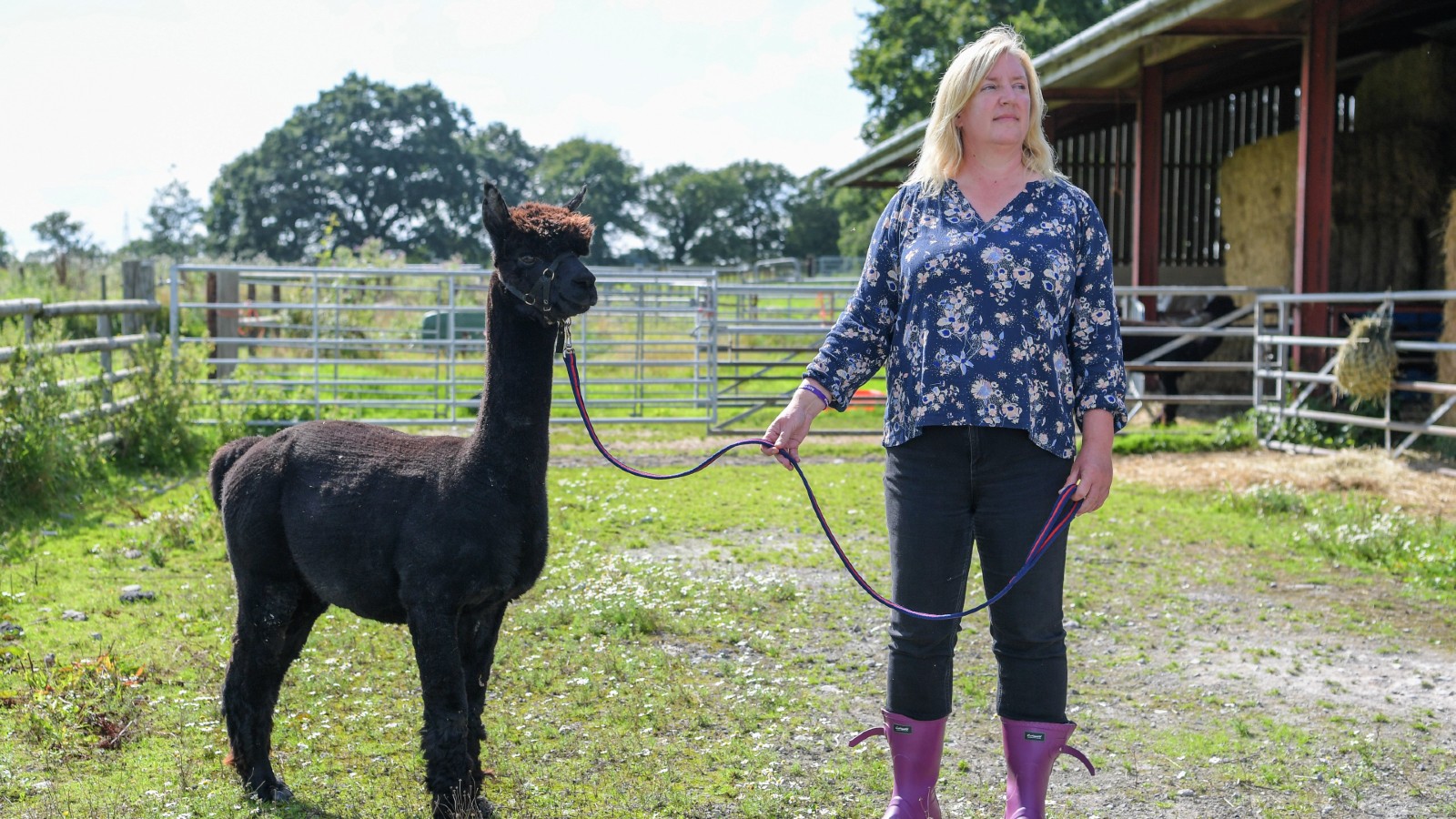Geronimo the alpaca euthanized after heartbreaking four-year battle to save him—but can bovine tuberculosis actually spread to humans?
Geronimo the alpaca has been euthanized after a four-year-long legal battle and campaign to save him, which gained celebrity support


Geronimo the alpaca has been euthanized after a four-year-long battle to save his life. The animal's plight drew support from all over the world as his loving owners fought to save him.
His owner Helen Macdonald is an example of the lengths you'll go to when it is your job to protect animals. The veterinary nurse has dedicated her life to caring for animals, especially alpacas, which she breeds and trains people to care for.
Geronimo's story began back in August 2017 when his owner Helen brought him over to England from New Zealand. It was when he tested positive for bovine tuberculosis in the same month that their difficulties began. A second positive test months later led to a court order for his destruction in July 2018.
Helen, a veterinary nurse, fought the ruling—seeking a judicial review and returning to court multiple times to try and save Geronimo. She and her alpaca's plight gained enormous support from the general public. A petition was signed by over 140,000 people and even celebrities like Joanna Lumley and Chris Packham were vocal in their support.
You might also like...
Women at Afghanistan dog charity in grave danger as Taliban move in next door
Helen has argued from the beginning and maintains that the regime is flawed and has begged the UK's Department for Environment, Food and Rural Affairs (Defra) to check again. The BBC reports that she says Geronimo, "tested positive previously because he had repeatedly been primed with tuberculin —a purified protein derivative of bovine TB bacteria."
Despite hopes for a last-minute reprieve, the alpaca was euthanized on August 31, 2021 by vets on behalf of Defra. They maintain that their reasoning is relating to the risk of spreading bovine tuberculosis.

What is bovine tuberculosis?
Bovine TB is caused by a bacterium called Mycobacterium bovis, (M. bovis) which is closely related to the bacterium that causes human and avian tuberculosis.
Sign up to our free daily email for the latest royal and entertainment news, interesting opinion, expert advice on styling and beauty trends, and no-nonsense guides to the health and wellness questions you want answered.
The BBC reports that Defra says, "Bovine TB remains one of the greatest animal health threats to the UK, causing devastation for hard-working farmers and rural communities."
Defra explains, "We are pursuing a range of interventions in cattle and in badgers to eradicate the disease by 2038. If we do not take action, TB could pose an increased risk to animal and human health and to the international image and reputation of our cattle industry."
There's already been widespread criticism of Defra for culling badgers, cattle and camelids.
According to Defra, 28,356 cattle were compulsorily slaughtered in England in the 12 months to March 2021, after testing positive for bovine tuberculosis. In 2020 alone 205 camelids (animals such as camels, llamas, and alpacas) were also culled.
Can humans get bovine tuberculosis
According to the UK government website, "all mammalian species, including humans, are susceptible to bovine TB."
Humans can be infected by ingesting unpasteurized milk or dairy products from an infected cow, buffalo, goat, or sheep. They can also be infected by inhaling bacteria breathed out by infected animals, and the bacteria released from the carcasses of infected animals or from their excretions. Infection is also more likely if an unprotected wound is exposed to bacteria from an infected animal.
Although the risk to humans is very low, the control of bovine tuberculosis is seen as a matter of public health.

Aoife is an Irish journalist and writer with a background in creative writing, comedy, and TV production.
Formerly woman&home's junior news editor and a contributing writer at Bustle, her words can be found in the Metro, Huffpost, Delicious, Imperica and EVOKE.
Her poetry features in the Queer Life, Queer Love anthology.
Outside of work you might bump into her at a garden center, charity shop, yoga studio, lifting heavy weights, or (most likely) supping/eating some sort of delicious drink/meal.